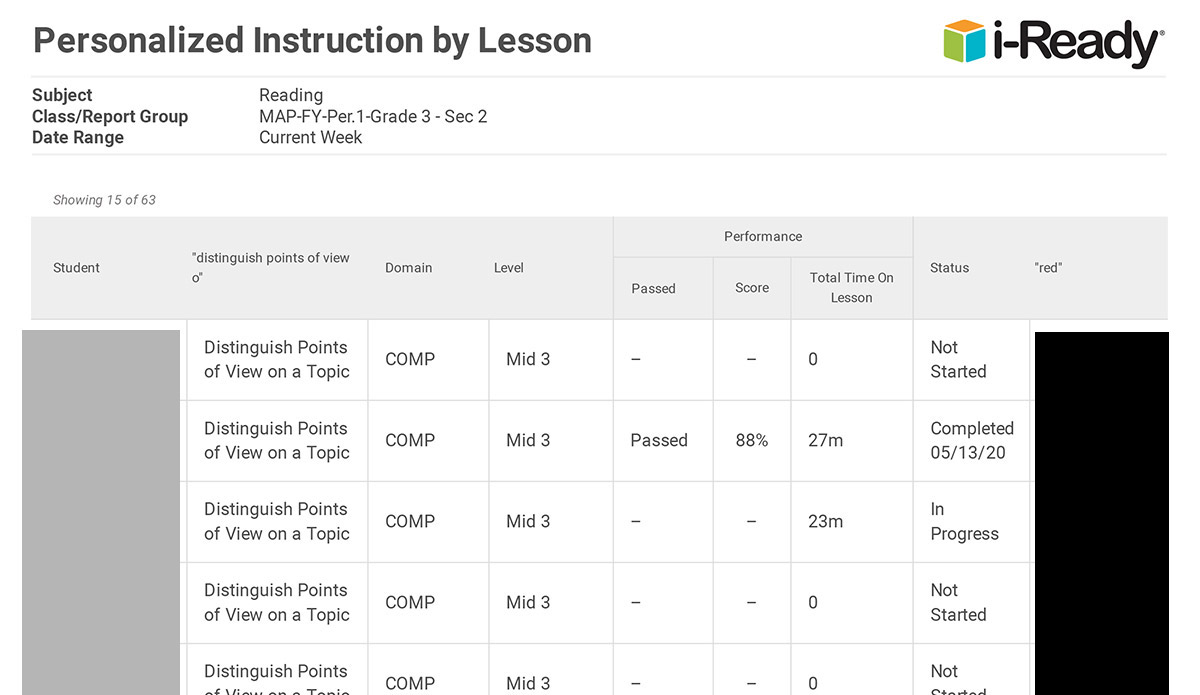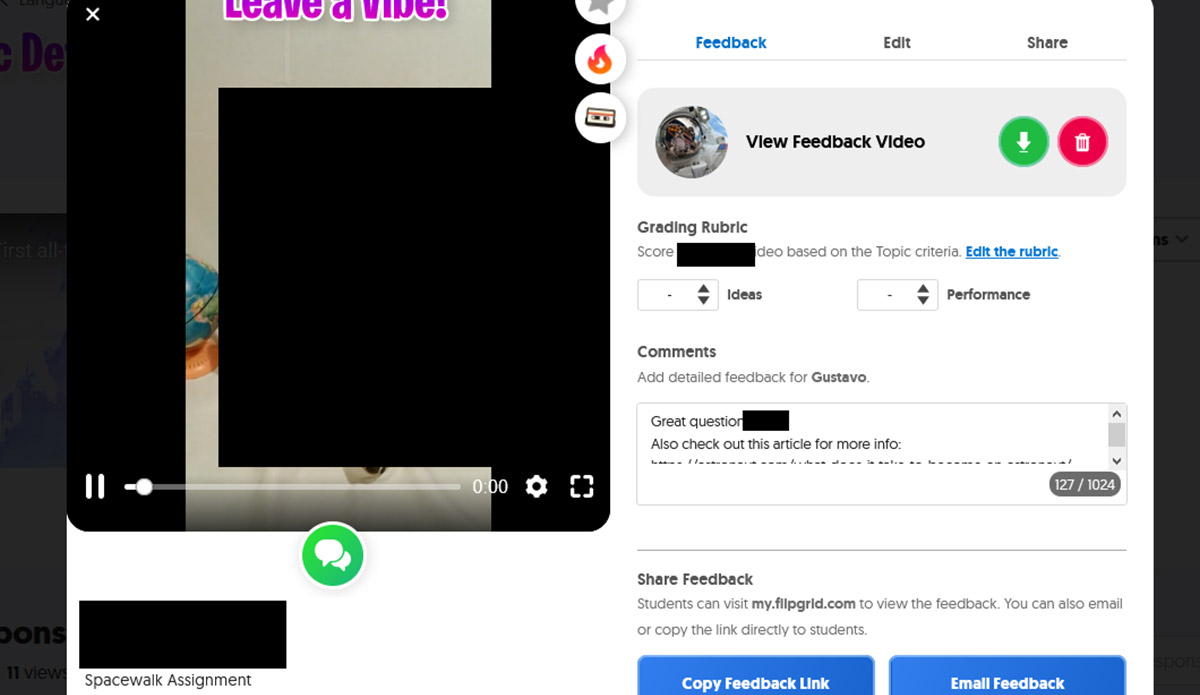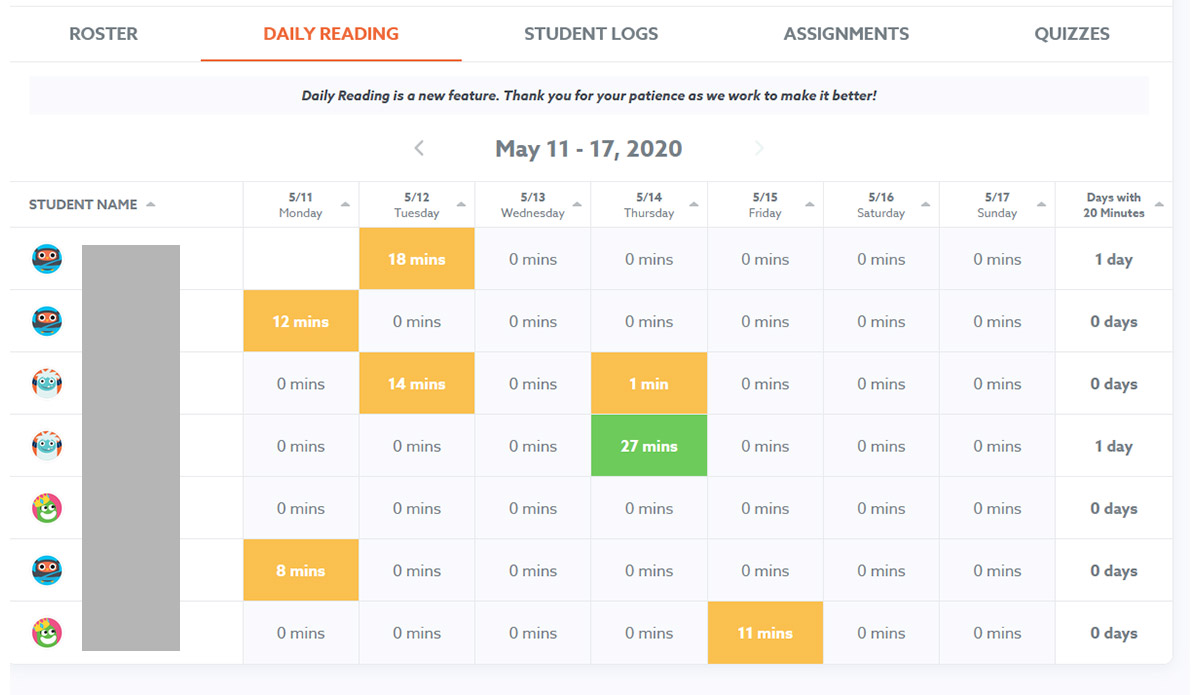TPE: U5-1
Artifacts: WCJIV from Case Study and Rubrics from Unit Project.



Teacher candidates use a variety of assessments to analyze, plan and modify instruction for all students. Teachers will design lessons to allow students to revise their work, with constructive feedback, from
Artifacts: WCJIV from Case Study and Rubrics from Unit Project.
Artifacts: Assessment Data from EDUC 425 Case Study & iReady Assessment Results.
Artifacts: Flipgrid Reflections, Fossil Fuels Student (Teacher Feedback with Student Revisions) and Reflection on IEP Goals.
Artifacts: IEP Plop & Progress on Goals, and Example of Differentiating Instruction.
Ed Specialist teacher candidates will apply a variety of assessments and implement them with fidelity. In addition to integrating alternative assessments based on students’ needs. Teachers will assess each case and select the most appropriate assessment tool(s), determining students’ growth, placement, and eligibility. With knowledge special education law- Ed. Specialists will align to assessment documentation and IEP guidelines. Teachers will also align to the protocols which drive the administration for each evaluation.
Artifacts: Case Study from SPED 406- Instructional Recommendations.
Artifacts: SPED Online Seminar/Website: Parent Rights and SPED Law, Analysis of a SPED Legal Issue and Mock IEP Meeting.
Demonstrate knowledge of second language development and the distinction between language disorders, disabilities, and language differences.
Artifacts: CA State-Wide Assessment (Caaspp) Testing Examples.
Work with specialists to interpret assessment results from formative and summative assessments to distinguish between students whose first language is English, English learners, Standard English learners, and students with language or other disabilities.
Interpret English learners' assessment data to identify their level of academic proficiency in English as well as in their primary language, as applicable, and use this information in planning instruction.
Apply knowledge of the purposes, characteristics, and appropriate uses of different types of assessments used to determine special education eligibility, progress monitoring, and decision making regarding eligibility, placement in LRE, and services. Candidates also apply knowledge of when and how to use assessment sources that integrate alternative statewide assessments, formative assessments, and formal/informal assessment results as appropriate, based on students’ needs.
Demonstrate knowledge of requirements for appropriate assessment and identification of students whose cultural, ethnic, gender, or linguistic differences may be misunderstood or misidentified as manifestations of a disability.